As a precision processing equipment, the application scenarios of hot stamping foil slitting machine have been expanded from traditional label production to many emerging fields, showing a high degree of flexibility and technical adaptability. The following is a detailed analysis of its diverse application scenarios:
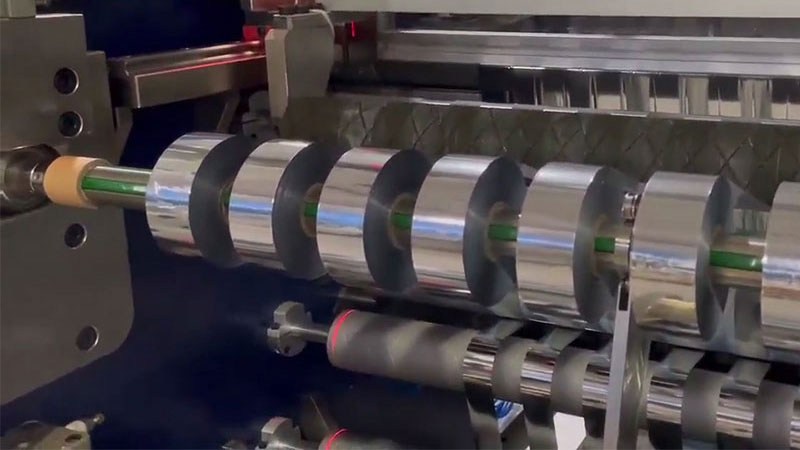
1. Label & Packaging Industry
• Self-adhesive labels
Slitting hot stamping foil (hot stamping material) is used for luxury labels, anti-counterfeiting logos, etc., to improve product quality. For example, the bronzing text of the wine label and the metallic luster logo of the cosmetics packaging.
• Flexible packaging trim
Narrow hot stamping foil is cut on the plastic film packaging of food and medicine, which is used for local hot stamping and enhances the shelf appeal. For example, the gilding edge of chocolate packaging and the security stripe of health care product boxes.
2. Printing & Decoration Materials
• Specialty paper processing
The slitted hot stamping foil is used for hot stamping of greeting cards, invitations, and high-end book covers, and realizes embossed effects or holographic patterns. Such as the three-dimensional pattern of the wedding invitation, the gilded title of the hardcover book.
• Industrial decorative films
The slitting of automotive interior film and home appliance panel film requires an accuracy of ±0.1mm to meet the needs of curved surface lamination. For example, the imitation metal brushed decorative film of the air conditioning panel.
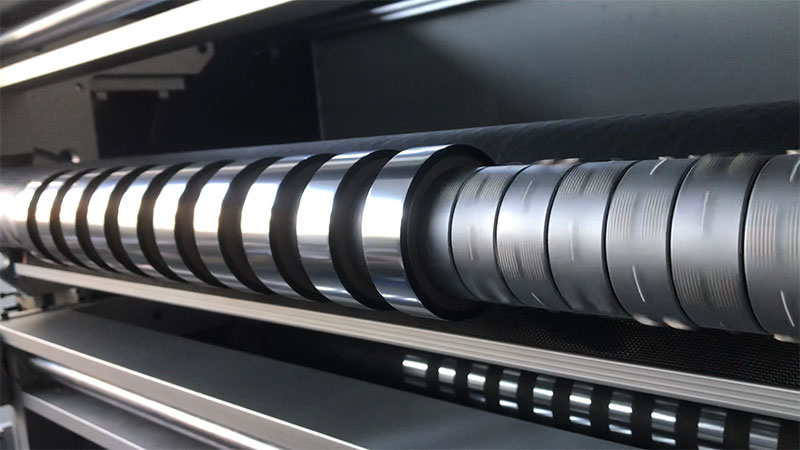
3. Electronic & Smart Devices
• Auxiliary materials for flexible circuits
Slitting ultra-thin hot stamping foil (thickness < 20 μm) is used as an electromagnetic shielding layer or conductive layer for FPC (flexible circuit boards), and a dust-free slitting environment is required.
• Touch panel decoration
Decorative metal film slitting for smartphone bezels and smartwatch dials requires burr-free edges to avoid assembly damage.
4. Applications in emerging fields
• New energy batteries
Slitting hot stamping foil, as a conductive layer of lithium battery current collector or packaging materials, requires anti-static slitting technology. For example, the slitting of aluminum-plastic film.
• Architectural decorative films
Large-format (over 1.5m) hot stamping foil film is used for glass curtain wall decoration after slitting, and the tension needs to be kept constant to avoid wrinkles.
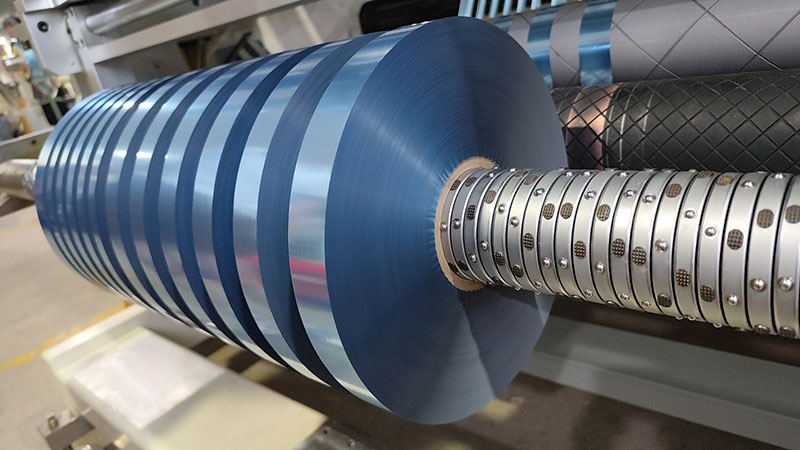
5. Process and technology upgrading
• Laser slitting technology
It replaces traditional blades and achieves μ-level accuracy, which is suitable for microelectronics (e.g. RFID antenna slitting).
• Intelligent detection system
Integrated CCD visual inspection, real-time rejection of defective hot stamping foil segments, the yield rate increased to more than 99.5%.
Market Trends and Challenges
• Growing demand for customization
The increase in the proportion of small batches and multi-variety orders has promoted the development of slitting machines in the direction of rapid mold change (<5 minutes).
• Processing of environmentally friendly materials
The slitting of recyclable anodized aluminium requires anti-stick knife technology to avoid material delamination.
The application boundaries of hot stamping foil slitting machine are continuing to expand with material innovation, and more breakthrough applications may appear in the future in the fields of micro electronic devices and wearable devices. Equipment manufacturers need to focus on high-precision, intelligent and flexible production capabilities to adapt to market changes.
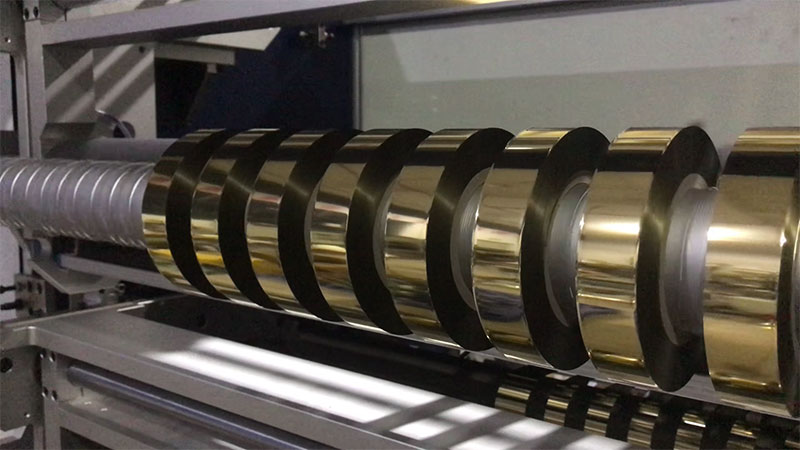
this once management pain point is now transforming into a powerful tool for printing enterprises to reduce costs and increase efficiency.
26. February, 2026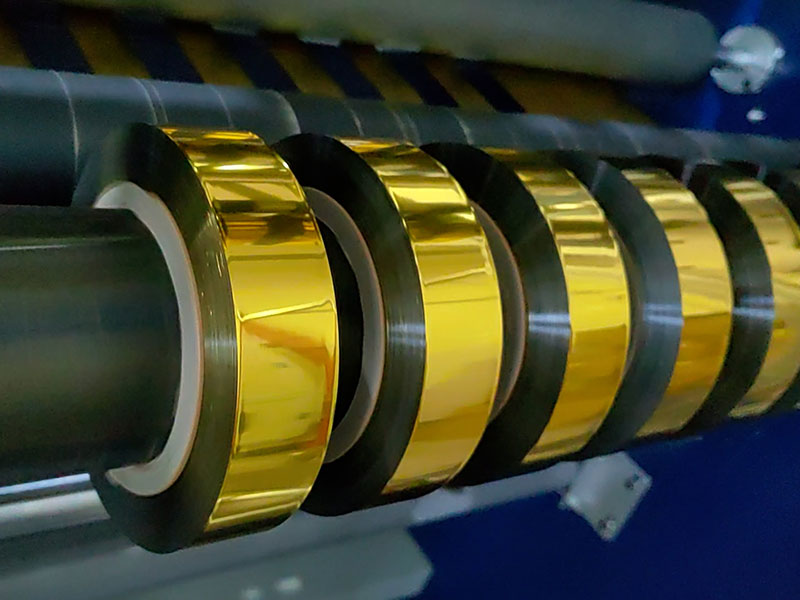
This article will delve into how to make the hot foil slitting machine the engine of your production process optimization through scientific equipment selection and management.
26. February, 2026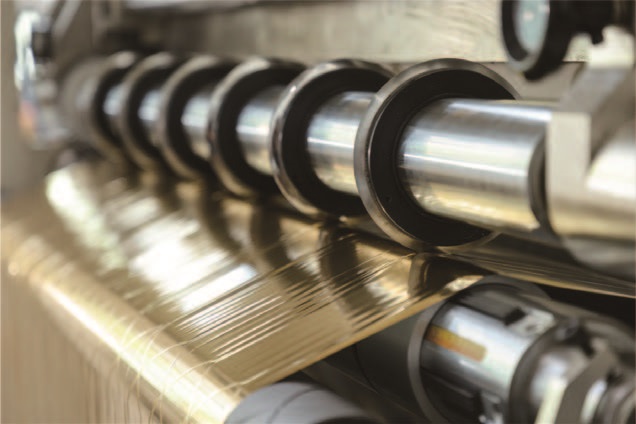
A precision platform that integrates multifunctional applications with cross-disciplinary process expansion.
26. February, 2026
The leap in its core competitiveness stems from the comprehensive empowerment of intelligent control technology.
11. February, 2026
This article will delve into the design innovations and technological breakthroughs of modern hot stamping foil slitting machines in achieving high stability and durability.
11. February, 2026